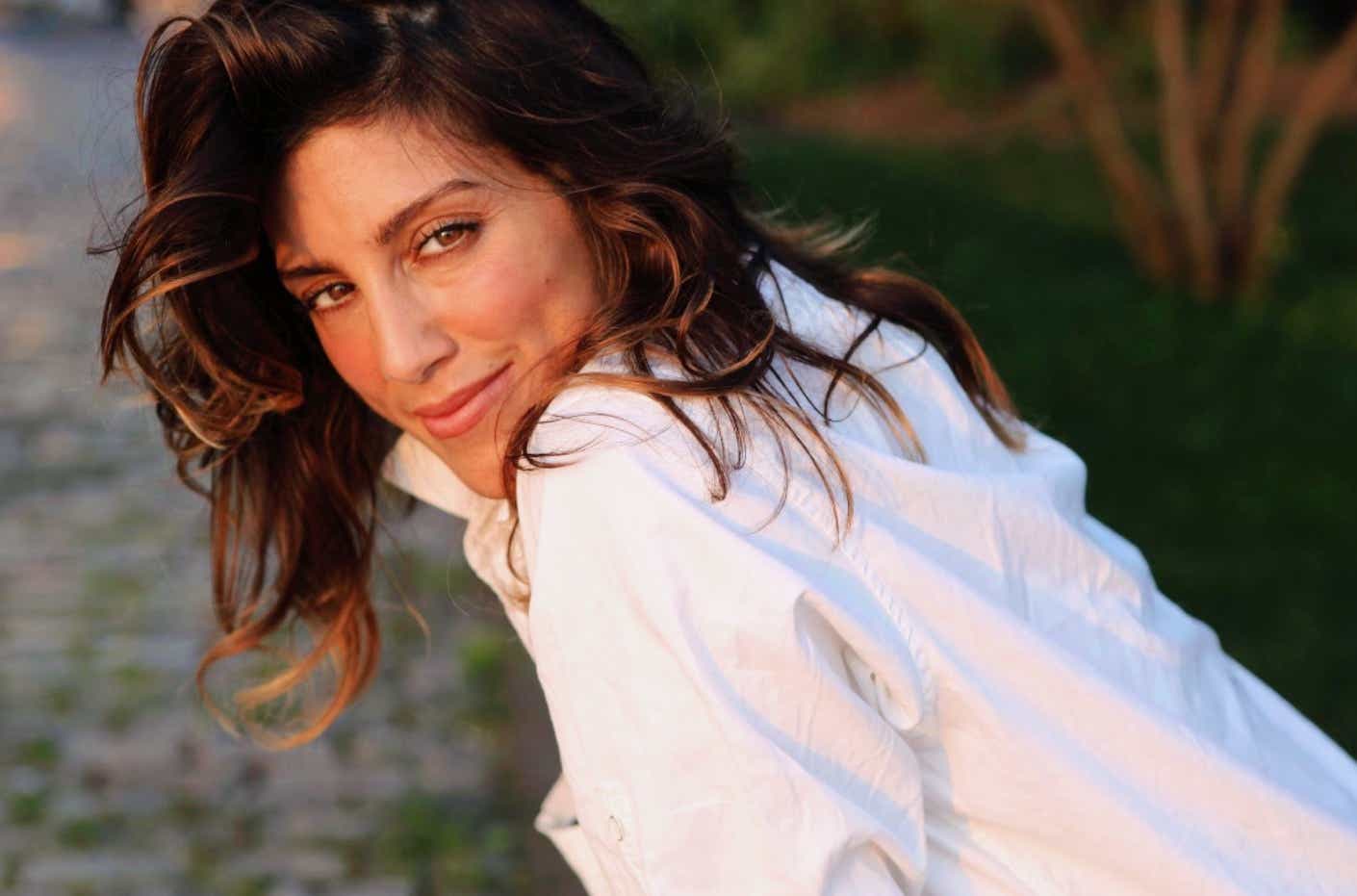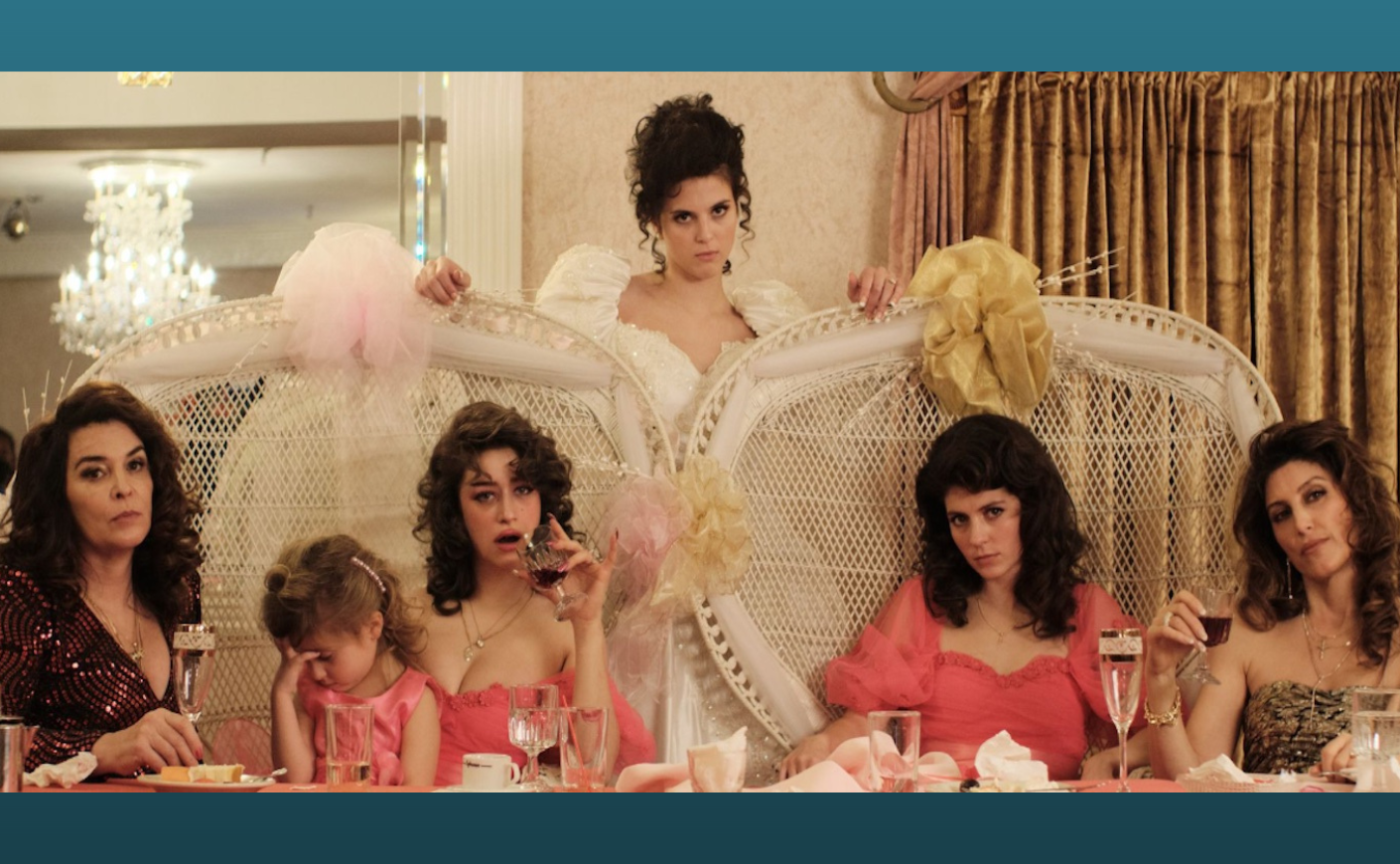You all know that I love to spotlight strong female voices who are serious badasses. You may recognize actress Jennifer Esposito from Law & Order, Spike Lee’s Summer of Sam, Samantha Who?, NCIS, and Blue Bloods.
But now she’s a quadruple threat — she wrote, directed, produced, and starred in the recent film Fresh Kills. Unlike typical mafia yarns, this story follows the women of a family involved in organized crime.
Making this movie required incredible creativity but even more persistence. Jennifer was relentless every step of the way.
I recently talked to Jennifer about Fresh Kills (which you can watch on Amazon Prime Video, Apple TV, or Vudu) and the long and rocky road she traveled to bring it to life.
Katie Couric: You wrote, directed, and co-produced this film…and starred in it too. What a Herculean task! Tell me about the genesis of this movie.
Jennifer Esposito: It's been a road. I grew up around families like this. Not my family, but I was friends with the young women of these families who had dads involved in organized crime.
It was a very rough area, and more so than the guys, the girls were really violent and had a lot of rage. That stayed with me: Why were they so angry? And I thought, I guess it's because of what their families do — I guess I'd be angry as well. Anyway, I left Staten Island and put myself through acting school by waiting tables.
After working in Hollywood, I started to realize that there were certain rules for me, being a woman, that my male counterparts weren’t dealing with. Having to wonder, Was I sexy? Was I sweet enough? Did I say the right thing? Did I not say it right? How do I show up in the world? The rage and anger I remembered from these young women from my childhood started to feel familiar, and I realized [that rage] had nothing to do with their families. It had to do with choice — they didn't have a choice in the world they were born into.
This film is placed in the mafia genre, but it really has nothing to do with the mafia. It's about finding a voice in a world that tells you not to have one. It's about breaking generational trauma.
Did you draw any of the actual characters in the film from some of the girls and families you were surrounded by growing up on Staten Island?
Yes and no. When you write, everything is some part of you. So I like to say that the character of Rose is who I really am, but Connie is who I had to become. But there are also pieces of Francine, the character I play, from someone I know. It's a very personal film in that way.
The movie has been described as a feminist take on the classic mob movie because much of it is told through the eyes of Rose, the family’s youngest daughter. How did you come up with that angle while writing the film?
It came from a place of wanting to have a voice in a world that I don't feel respects female voices enough. It came from a very personal place of being told who and what I was in my career for so long and that it was somehow negative to be bold and go after what I wanted. But also, we’ve never seen the females speak in these mafia movies. We've never really seen what they have to say and what they're thinking. Yes, we've seen pieces of it, like in The Sopranos, brilliantly portrayed by Edie Falco. But [that story] was never from her point of view. So if that makes Fresh Kills a feminist take on the mafia genre, then great.
It seems like this is also a natural evolution for you to seize more power in the filmmaking process. You recently talked about a terrible experience you had in your 20s with a Harvey Weinstein-like producer who set out to ruin your career. Talk about feeling powerless. Can you share with us what happened?
It's wild because even talking about this 20 years or so later, it's still hard and very emotional. So after Summer of Sam with Spike Lee, I kind of got shot out of a cannon, and I ended up with a lot of offers coming in for very big films. There was one in particular that I really wanted to work on, with this one director.
He was fighting with this notorious producer on the movie. And my agents warned me that this producer could make or break my career, so I had better stay out of his way. So, to make a very long story short, the director called me in and said, “[The producer] doesn't want you here. But I want you here, so we're gonna battle, and it's gonna be OK.”
It wasn't a sexual attack from the producer. But he would call my apartment at all hours and make demands. And every other sentence was, “Well, if you don't do it, you're fired. Do you know I can destroy you?” [He was] screaming at me. There were times when I wasn't supposed to be anywhere near set, and he would call me up and say, “You’ve got 20 minutes to get here.” So I felt almost not able to share my trauma 'cause it wasn't sexual, but it was abuse. I had to finally understand that abuse is abuse.
Then, when the producer did get [the actress] he wanted, he fired me. I’d never been fired before. Later, I was up for a very big job, and I got a phone call from the director of the previous movie. He said, “[The producer is] going after you, so I want you to know you should call your agents and let them know what's happening.” He had told the other film studio not to hire me because I was a drug addict, though I've never taken a drug in my life. I didn't get the job, obviously — I was dropped by my management and agents. They said, “We can't go up against him, even though we know that [what happened] isn’t right.”

Have you ever named this individual?
No. He had a downfall a couple of years back, and someone I was close with through Time’s Up called me and said, “Jen, I think now is the time [to speak up].” But the trauma of just telling my story brought back such a horrible time in my life. I was at a moment when I was trying to raise money for Fresh Kills, and I thought, I will not have this person touch my life again. I thought, He's not going to touch something so beautiful. So I've been very careful not to say his name.
But I really do thank him because, without that abuse, I would have had this other kind of career. And without that abuse, I don’t think I would've ever done what I've done. Without having the strength to keep going, I would've never done [Fresh Kills]. And this is the most proud I've ever been of anything I've ever done in my life.
It was nice to see Annabella Sciorra play your sister in the movie. She had her own story about being abused and having her career derailed by Harvey Weinstein. Was that why it was important to cast her?
That was one of the reasons. First of all, Annabella is an extraordinary actress and someone I looked up to when I was coming up [in the industry]. But I met her through Time's Up and thought, We're all talking about helping each other, so let's employ someone fantastic. She brings such weight and complete authenticity to Fresh Kills that I am so grateful for. She’s a powerful actress, and no one deserves their career to be taken away. Not that I was doing her a favor at all — she was gracious enough to come and do this. I think we both had an understanding that we're fighters. We're not gonna stop. She’s a fellow Italian Brooklyn girl who knew this world. So for her to play my sister was just a joy.
I wondered how you were able to do all of this practically: write, produce, direct, get the financing, and try to get distribution. That's what I meant when I said it was a Herculean task. You were offered $5 million to step aside and let a man direct, and you refused. Can you tell us a little bit about the blood, sweat, and tears it took to get this thing done?
I don't know how I'm still standing, to be quite honest. It's been a lot. The writing process was one thing because this is my first script. Then, to get it out and get people to read it…it was very hard for people to take it seriously. Then when they did read it, they were like, ”This is really good,” but I don't even know how many meetings I had on Zoom pitching it and telling people that we need a certain amount of money, and the conversation always ending in a no.
On the final day, I was in a Zoom with four men, and literally, one guy stopped and said, “You're so passionate.” I was just like, I can't do this anymore. Why are you talking about how passionate I am? You would never say that to a dude. I went to my husband and said, “I think I need to mortgage the house because I can't keep asking for permission from people who aren’t even seeing me.” And he was like, “Go for it.” So I wound up mortgaging our house. Then there was a year of trying to get the film into festivals and people saying no again. Finally the movie comes out and we're in festival after festival. We're winning awards, and it's amazing, but we're still not getting distribution. It took a year for us to get distribution, and then I pushed to get it to AMC, and then we had no marketing money. So I'm like a marketing genius now.
Every time I show this film and speak at these screenings, and I'm with an audience, it renews my faith that I wasn’t incorrect. People want real stories. They want a story that hits them, a story that matters. They want a story that makes them feel something. This story is not about the mafia — it's about a broken family. It's also about a loving family. It's about sisters, it's about mother/daughter relationships, and father/daughter relationships. It's about finding your voice in a family that maybe isn't the best for you.
I was just at a screening with a 6-foot ex-football player next to me. He was standing there with tears in his eyes, and he looked at me and said, “I really relate to Rose.” That shows you that this isn’t a “girl's” movie. It's a movie. I think people are craving human connection. They're craving something more. And that's what Fresh Kills is.
When did you start writing it?
Oh my God, it had to be at least 10 or 15 years ago. I got sidetracked and put it down, but about five years ago, I was feeling so soul-crushed. I got so tired of hearing myself complain to agents, complain to managers, complain about where the industry was for women, complain about women's rights and voice and going to the marches, and no one cares.
But then I thought, Well, what are you doing? Stop waiting for someone to call you and tell you that everything is fixed. Go do something. So I said to myself, I'm writing this thing and I'm not getting up until I finish. And I did.
This conversation has been lightly edited for length and clarity.









